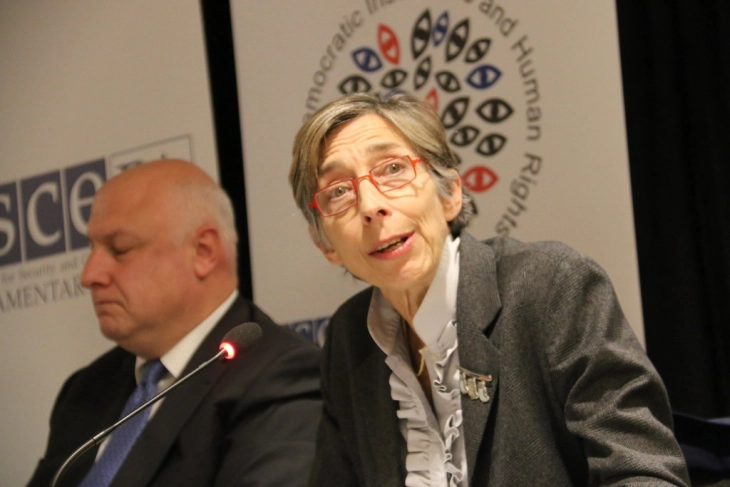OSCE/ODIHR to monitor local elections with 20 long-term and 250 short-term observers

Skopje, 7 September 2021 (MIA) – OSCE/ODIHR opened on Tuesday an election observation mission (EOM) for the October 17 local elections in North Macedonia, in specific circumstances due to the Covid-19 pandemic. Fingerprint scanners will be used for the first time in these elections, and the Mission told Mia they have already inspected several of these terminals during a meeting at the State Election Commission (SEC).
Head of the Mission Tana de Zulueta told Tuesday’s press conference that the Mission consists of a core team of 13 experts based in Skopje and 20 long-term observers, who will be deployed throughout the country from September 15. ODIHR also plans to request OSCE participating states to send 250 short-term observers, who would arrive several days before election day.
De Zulueta said they already held a meeting on Tuesday at the Ministry of Foreign Affairs , as well as at the SEC.
“We’ll be here, at the invitation of the national authorities, to observe the elections, assess whether they are held in line with OSCE commitments, as well as with national legislation,” De Zulueta said.
Fingerprint scanners will be used for the first time in these elections in the country. In response to MIA on whether the Mission has experience in observing such elections, they said the OSCE/ODIHR mission includes a voter registration analyst, and their representatives in the SEC have already inspected several of these devices, but will also examine how they have been implemented in other OSCE participating states.
The mission will assess whether the elections are held in line with OSCE commitments and other international obligations and standards for democratic elections, as well as with national legislation. Observers will closely examine key aspects of the elections such as voter registration, candidate registration, campaign activities and their financing, the work of the election administration and relevant government bodies, election-related legislation and its implementation, and the resolution of election-related disputes. The mission will also monitor media coverage of the campaign.
Meetings with representatives of state authorities, political parties, civil society, the media and the international community are also planned. The ODIHR mission will co-operate closely with the health authorities of North Macedonia and follow all rules they have established
Head of the Mission De Zulueta stressed that given the great problem facing the country, namely the Covid-19 pandemic, they will adhere to all measures implemented in the country to prevent the spread of the disease.
“This will be a very important component of monitoring, both in terms of short-term and long-term monitoring,” she said.
An interim report will be published to update the public and media during the course of the observation. ODIHR will present its preliminary findings and conclusions at a press conference the day after the election, and will publish its final report on the observation including potential recommendations approximately two months after the end of the election process.







